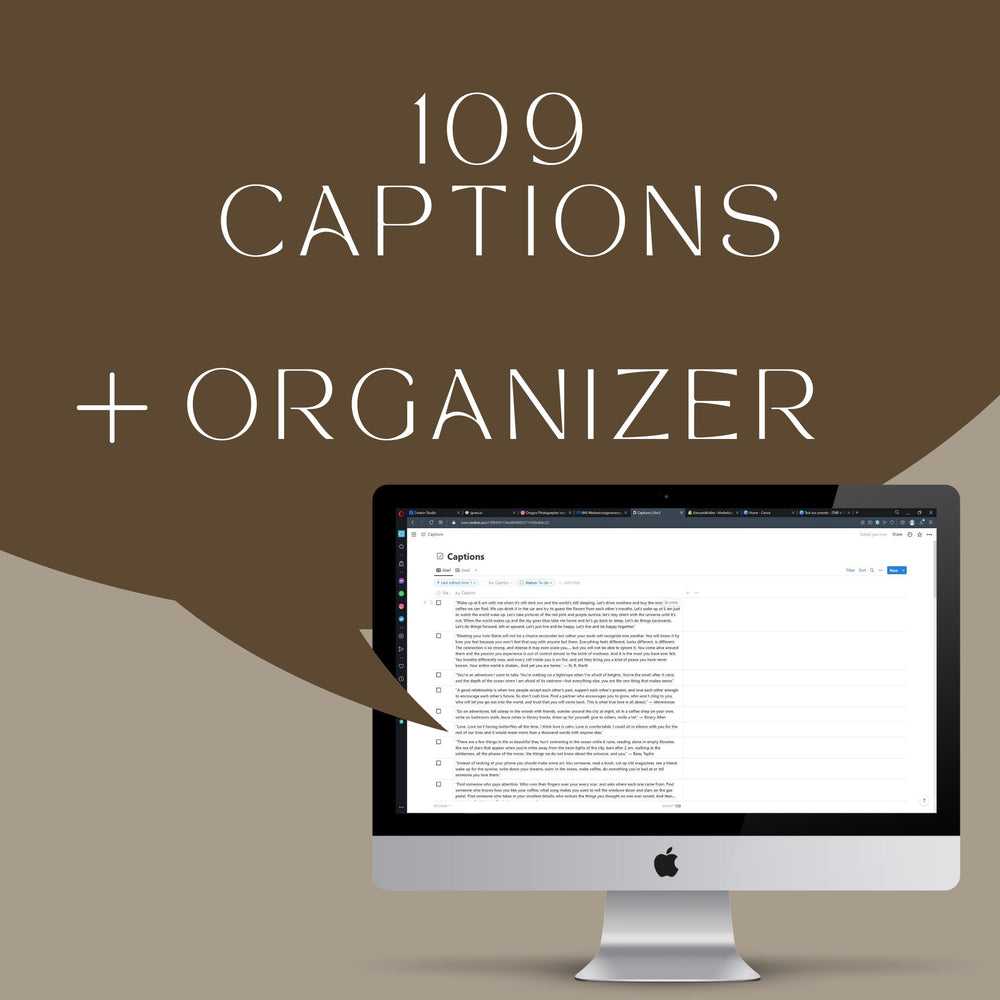How to Build a Wedding Photography Website: A Comprehensive Guide for Success

Introduction: In the digital age, having a strong online presence is crucial for any professional photographer, especially for those specializing in wedding photography. A well-designed website can serve as your virtual portfolio, showcasing your talent and attracting potential clients. But how do you build a wedding photography website that stands out from the competition? In this guide, we will provide you with valuable insights and step-by-step instructions on creating a captivating website that captivates your audience and helps grow your business.
Table of Contents
- Why Building a Wedding Photography Website is Essential
- Choosing the Right Platform for Your Wedding Photography Website
- Selecting a Memorable Domain Name
- Designing a Visually Stunning Website
- Creating an Engaging Homepage
- Showcasing Your Wedding Photography Portfolio
- Crafting Compelling Content and Descriptions
- Implementing a Responsive and User-Friendly Design
- Optimizing Your Website for Search Engines
- Integrating Social Media into Your Website
- Building an Effective Contact Page
- Offering Online Booking and Client Management
- Enhancing Website Security and Privacy
- Integrating Client Testimonials and Reviews
- Implementing a Blog to Boost Engagement
- Utilizing Analytics to Track Website Performance
- Ensuring Mobile-Friendly Responsiveness
- Implementing Effective Call-to-Actions
- Adding Video Content to Enhance Your Website
- Considering E-commerce Options for Print Sales
Why Building a Wedding Photography Website is Essential
In today's digital landscape, having a strong online presence is crucial for the success of any wedding photographer. A dedicated website allows you to showcase your unique style, highlight your best work, and provide potential clients with all the information they need to make an informed decision. Additionally, a website acts as a hub for your online marketing efforts, enabling you to reach a wider audience and establish your brand.
Choosing the Right Platform for Your Wedding Photography Website
When it comes to building your wedding photography website, choosing the right platform is paramount. There are various options available, each with its own advantages and disadvantages. Popular platforms such as WordPress, Wix, and Squarespace offer user-friendly interfaces, customizable templates, and robust features. Consider your specific needs, budget, and technical expertise before selecting the platform that best suits your requirements.
Selecting a Memorable Domain Name
Your domain name is your online identity, so it's important to choose a memorable and relevant one for your wedding photography website. Ideally, your domain name should reflect your brand and be easy to spell, pronounce, and remember. Consider using your name, your business name, or a combination of both. Additionally, opt for a domain extension that aligns with your target audience, such as .com, .photography, or .wedding.
Designing a Visually Stunning Website
When it comes to wedding photography, aesthetics play a crucial role in attracting potential clients. Design a visually stunning website that reflects your unique style and showcases your best work. Choose a clean and elegant design that allows your photographs to take center stage. Utilize a harmonious color palette, easy-to-read fonts, and intuitive navigation to create a delightful browsing experience.
Creating an Engaging Homepage
Your homepage serves as the virtual storefront of your wedding photography business. Make a strong first impression by incorporating captivating images, a clear headline, and a concise description of your services. Use compelling calls-to-action to guide visitors to explore your portfolio, learn more about your approach, or contact you for inquiries. Remember, the homepage sets the tone for the rest of your website, so make it captivating and informative. To speed up content creation and ensure consistency across channels, consider using pre-written captions for your website and social media.
Showcasing Your Wedding Photography Portfolio
One of the most crucial aspects of your website is showcasing your wedding photography portfolio. Curate a selection of your best and most representative work to impress potential clients. Organize your portfolio into relevant categories, such as engagements, weddings, and bridal portraits. Provide detailed descriptions for each project, including the couple's names, the location, and any special moments captured.
Crafting Compelling Content and Descriptions
While your photographs will speak for themselves, well-crafted content and descriptions can enhance the overall experience of your website. Write engaging and informative text that tells the story behind each photograph, highlights your approach and style, and provides valuable insights for potential clients. Incorporate relevant keywords naturally to improve your website's visibility in search engine results.
Implementing a Responsive and User-Friendly Design
With the increasing use of mobile devices, it's essential to ensure that your wedding photography website is responsive and user-friendly across all screen sizes. Opt for a responsive design that automatically adjusts to fit various devices, ensuring a seamless browsing experience for your visitors. Test your website on different devices and browsers to guarantee optimal performance.
Optimizing Your Website for Search Engines
To increase your online visibility and attract organic traffic, it's crucial to optimize your website for search engines. Conduct thorough keyword research to identify relevant keywords and incorporate them naturally into your website's content, titles, meta descriptions, and image alt tags. Focus on creating high-quality, informative, and engaging content that provides value to your visitors.
Integrating Social Media into Your Website
Social media can be a powerful tool for wedding photographers to showcase their work, engage with their audience, and attract potential clients. Integrate social media icons and sharing buttons into your website to encourage visitors to follow and share your content. Display a live feed of your Instagram or Facebook posts to provide a glimpse into your recent projects and keep your website content fresh.
Building an Effective Contact Page
Make it easy for potential clients to get in touch with you by creating an effective contact page. Include a contact form, your email address, and phone number. Additionally, consider adding a map with your location and operating hours. Incorporate a strong call-to-action that encourages visitors to reach out and inquire about your services.
Offering Online Booking and Client Management
Streamline your workflow and enhance the user experience by offering online booking and client management features on your website. Implement a booking system that allows clients to schedule appointments directly, view available dates, and make secure payments. Utilize client management tools to organize client information, track project progress, and send automated reminders.
Enhancing Website Security and Privacy
As a wedding photographer, you'll be handling sensitive client information and valuable photographs. Protect your website and your clients' data by implementing robust security measures. Ensure your website has an SSL certificate for secure data transmission. Regularly update your website's plugins, themes, and software to prevent vulnerabilities. Consider using watermarks on your photographs to deter unauthorized usage.
Integrating Client Testimonials and Reviews
Client testimonials and reviews are powerful social proof that can instill trust in potential clients. Display testimonials prominently on your website to showcase the positive experiences of previous clients. Consider including photographs and short descriptions alongside the testimonials for added impact. Encourage satisfied clients to leave reviews on popular review platforms to boost your online reputation.
Implementing a Blog to Boost Engagement
A blog is an excellent way to enhance engagement, establish yourself as an industry expert, and improve your website's search engine optimization. Share valuable tips, behind-the-scenes stories, and wedding photography inspiration through regular blog posts. Incorporate high-quality images and encourage readers to leave comments and share your posts on social media.
Utilizing Analytics to Track Website Performance
To measure the success of your website and marketing efforts, it's essential to utilize analytics tools. Set up Google Analytics or similar tools to track visitor behavior, popular pages, and referral sources. Analyze the data regularly to identify areas for improvement, track the effectiveness of your marketing campaigns, and make data-driven decisions to optimize your website's performance.
Ensuring Mobile-Friendly Responsiveness
In today's mobile-driven world, a mobile-friendly website is no longer a luxury but a necessity. Optimize your website for mobile devices by ensuring fast loading times, intuitive navigation, and a visually appealing layout. Test your website on different mobile devices and screen sizes to ensure a seamless and enjoyable experience for your mobile visitors.
Implementing Effective Call-to-Actions
Encourage visitors to take the desired actions on your website by incorporating effective call-to-actions (CTAs). Whether it's booking a consultation, subscribing to your newsletter, or following you on social media, strategically place CTAs throughout your website to guide visitors and generate leads. Use action verbs and create a sense of urgency to prompt immediate responses.
Adding Video Content to Enhance Your Website
Incorporating video content on your wedding photography website can add an extra dimension to your portfolio and engage visitors in a unique way. Create highlight reels, behind-the-scenes videos, or client testimonials to showcase your work and give potential clients a glimpse into your process. Embed videos directly on your website or link to your YouTube or Vimeo channel.
Considering E-commerce Options for Print Sales
If you offer print sales or other products related to your wedding photography, consider integrating an e-commerce solution into your website. Choose a reliable platform that allows you to showcase your products, manage inventory, and securely process payments. Provide detailed product descriptions, high-resolution images, and multiple customization options to cater to your clients' needs.
Frequently Asked Questions (FAQs)
1. Can I build a wedding photography website if I have no coding experience? Absolutely! With user-friendly website builders and platforms available today, you can create a stunning wedding photography website without any coding knowledge. Platforms like WordPress, Wix, and Squarespace offer intuitive drag-and-drop interfaces and pre-designed templates that you can customize to match your style.
2. How many images should I include in my wedding photography portfolio? While there is no set number, it's important to showcase a variety of your best work. Aim for a well-curated portfolio that highlights your skills and style. Quality is more important than quantity, so choose images that evoke emotions, showcase your creativity, and demonstrate your ability to capture precious moments.
3. Should I include pricing information on my website? Including pricing information on your website is a personal choice. Some photographers prefer to display their pricing openly, while others prefer to provide customized quotes based on individual client needs. Consider your business model and target market when deciding whether to showcase pricing or request clients to contact you for a personalized quote.
4. How can I attract traffic to my wedding photography website? To attract traffic to your website, utilize various online marketing strategies. Optimize your website for search engines by incorporating relevant keywords, create valuable content through a blog, actively engage on social media platforms, collaborate with other wedding vendors, and consider investing in online advertising to reach a wider audience.
5. Is it necessary to have a blog on my wedding photography website? While having a blog is not mandatory, it can be a valuable addition to your website. A blog allows you to share your expertise, showcase your work, and improve your website's visibility in search engine results. It also provides an opportunity to connect with your audience on a deeper level and establish yourself as a thought leader in the industry.
6. How often should I update my wedding photography website? Regularly updating your website is essential to keep it fresh and relevant. Add new portfolio images, update your blog with fresh content, and make necessary changes to reflect any updates in your services or pricing. Aim to review and update your website at least once every few months to ensure it accurately represents your business.
Conclusion
Building a wedding photography website is an exciting and essential step towards establishing your online presence and attracting potential clients. By following the steps outlined in this comprehensive guide, you'll be able to create a captivating website that showcases your skills, engages your audience, and sets you apart from the competition. Remember to regularly update your website, monitor its performance, and adapt to the ever-changing digital landscape. Start building your dream wedding photography website today and watch your business flourish.









![[NEW] Clean Collection Presets Mobile - bitesandtickles](http://bitesandtickles-shop.com/cdn/shop/products/new-clean-collection-presets-mobile-256234.jpg?v=1685723321&width=1000)












Leave a comment